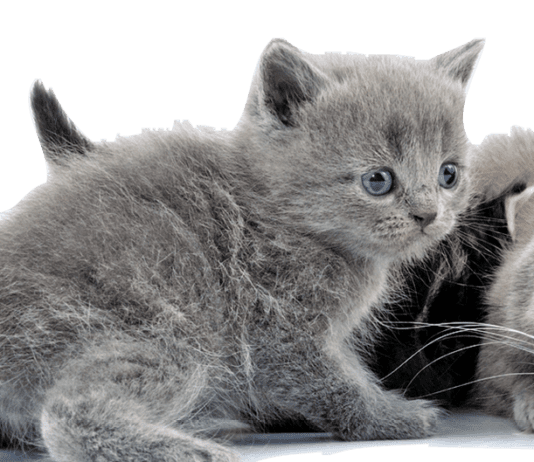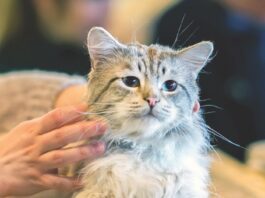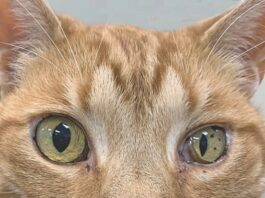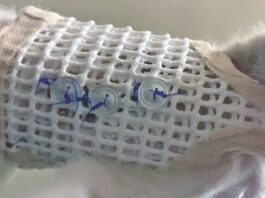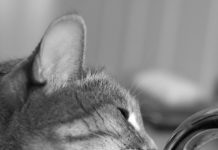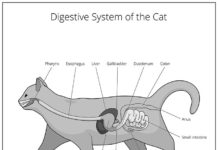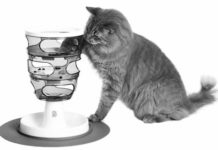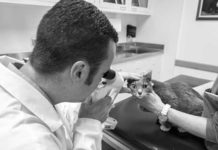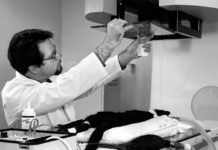Short Takes: March 2017
Scientists have identified many factors that affect a species survival - from diet and weather to the size of breeding groups to social relationships. However, researchers at Michigan State have found that some wild cats dont necessarily respond to the same evolutionary pressures as other mammals, including humans and primates.
What Those Mighty MRIs Can Uncover
A neutered male Persian experiencing severe lower back pain had his owners concerned and his veterinarian puzzled. That prompted a referral to Cornell University Hospital for Animals, where the veterinary team turned to one of its most sophisticated diagnostic tools: magnetic resonance imaging (MRI).
The Challenge of Long-term Steroids for Cats
Corticosteroids have proven effective in treating a variety of conditions from allergic reactions to brain disease, but they present a balancing act for both owners and veterinarians. Owners, faced with their cats experiencing any one of a long list of health problems, must weigh if long-term use is worth the risk of steroids side effects. At the same time, veterinarians must determine the lowest dose of medication to control the condition.
The Telling Sign of Fatty Liver Disease in Cats
As a species, cats have earned the reputation of being finicky eaters. But if your cat is avoiding food, dont dismiss it as mere feline pickiness. Avoidance of food can be a symptom of hepatic lipidosis, a common yet serious liver condition also known as fatty liver disease. If left untreated, hepatic lipidosis can be deadly.
Food Puzzles for Cats; Going to the Vet
In advocating environmental enrichment for indoor-only cats, it calls food puzzles foraging devices. The journal warns that, if not managed appropriately, indoor life can contribute to health problems such as obesity and diabetes, and problem behaviors such as house-soiling and attention seeking. Nutrition is the most pressing subject that cat owners want to discuss with the veterinarian, but the same survey, conducted at the end of summer, found that 60 percent of owners dont regularly take their cat to the veterinarian.
When Blindness Suddenly Strikes
If your usually confident cat starts acting confused, bumping into objects and having difficulty finding his food bowl, he could have a rare but serious condition. Sudden blindness can develop seemingly overnight and needs immediate veterinary intervention. Depending on the timing, an ophthalmologist may be able to preserve some vision. The condition has many causes, from central nervous system disease to inflammation; however, As a veterinary ophthalmologist, I would say the most common cause of sudden blindness that I see among cats who appeared otherwise normal prior to the vision loss is a condition called hypertensive retinopathy, says Eric C. Ledbetter, DVM, ACVO, Associate Professor of Ophthalmology at Cornell University Hospital for Animals.
A New Era in Medicine: Feline Genetic Screening
Complete genomes - genetic blueprints - of numerous cats DNA have been sequenced in what has been described as a new era in veterinary medicine. Cornells Veterinary Biobank, as one example, is a database of DNA and tissue samples from several species. The biobank is supported in part by the Cornell Feline Health Center.
How to Navigate a Second Opinion
When you bring a cat into your family, you make decisions in his best interest for food, litter and veterinary care. As your cats healthcare proxy, youre also responsible for routine check-ups, dental health and vaccinations. Sometimes, however, you may need to make more difficult decisions, perhaps to seek a second opinion when the current treatment isnt working.
Easily Missed Signs of Skin Cancer in Cats
These tumors are often diagnosed in their advanced stages because of the cats exceptional ability to hide signs of serious disease. However, new research and emerging targeted therapies have the potential to improve lives. The advances may be able to provide a better outcome to patients stricken with these cancers, says Cheryl Balkman, DVM, ACVIM, Senior Lecturer and Chief of Oncology at Cornell University College of Veterinary Medicine.
Dont Ignore Extended Head Pressing
If your cat firmly presses his head against a wall or sofa for extended periods for no apparent reason, dont be quick to dismiss it as attention seeking. He could be facing a significant health problem. Head pressing is an abnormal behavior, Dr. Kaplan says. It should be considered an emergency, and veterinary attention should be sought immediately.
Vomiting More Than Once a Week Warrants an Exam
Vomiting can be caused by many problems, ranging from obstruction of the gastrointestinal tract by hairballs or ingested string and other objects to metabolic diseases like kidney disease and hyperthyroidism, to inflammatory diseases like inflammatory bowel disease, to the ingestion of toxic substances such as plants, to cancer.
Studying the Genetic Basis of Feline Heart Disease
The disease takes several forms: hypertrophic cardiomyopathy, where the walls of the heart are thick; restrictive, where the walls are stiff; dilated, where there is thinning and weakening of the heart muscle, and arrhythmogenic right ventricular, where fat and scar tissue replace heart muscle, primarily in the right side of the heart.

